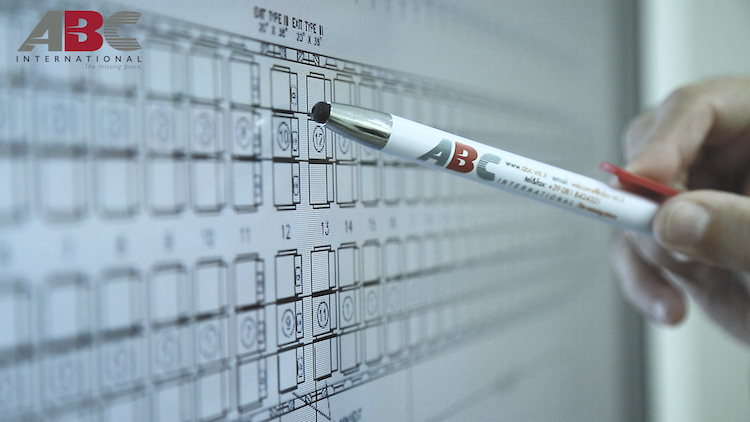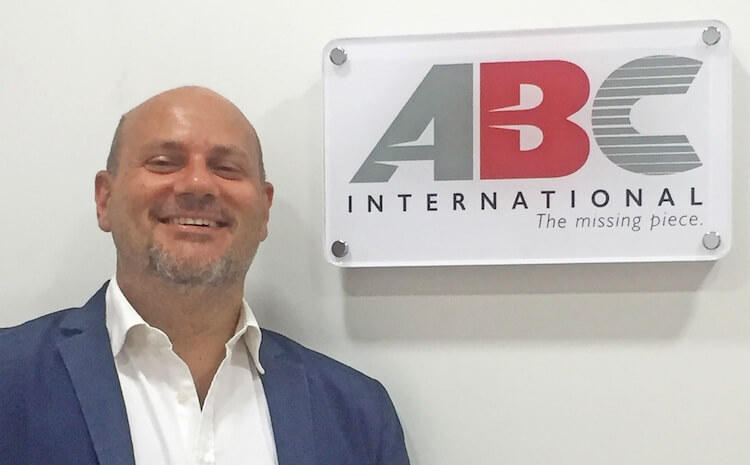Tapis, ABC International and Unum are all for one common goal
This is a special feature from PAX Tech's AIX Hamburg June 2022 issue, on page 15.

Interiors companies are all about efficiency and convenience for their airline customers. The supply chain hiccups in the last two years have proven this to be even more crucial whether it is cabin materials and textiles, seating or interior and refurbishment services.
PAX Tech interviewed three companies on the services they offer that stand to bring customers multiple benefits.
Lighten the load
Fuel prices play a part in many of the decisions that airlines make, including selecting interiors materials and fabrics. With fuel prices expected to continue to rise and the industry trending toward sustainable solutions, Tapis Corporation is busy on both fronts.

Jason Estes, Vice President of Global Sales and Marketing, Tapis
“Tapis has always focused on saving weight and developing lightweight products and fabrics. It’s built into the DNA of our products,” says Jason Estes, Vice President of Global Sales and Marketing. “But we know as technology continues to advance and the industry has a demand for it, we can make our products even more lightweight and sustainable.”
The company has goals of including plant-based and renewable materials within its products by 2030. The Ultrasuede product is already partially plant-based and TapiSuede is made with 88 percent recycled polymers. Tapis sources products from natural resources that can be easily restored.

Tapis’ Ultrasuede fabrics are partially plant-based and lightweight
“We are taking small steps to bring renewable and plant-based products to the industry while keeping it lightweight,” explains Lauren Kenealy, Marketing Manager at Tapis, adding that the company believes that sustainable innovations play a large role in the future success of commercial aviation.
“We want to be small stepping stones that become a part of the big picture,” she says. “We are in a market that is often targeted for not being the most sustainable. So, we want to create products that aid in the development of sustainability. We don’t want our material to weigh any more than it needs to.”
When air travel starts returning to normal, Tapis says it hopes to see industry innovations continue to excel – and to see what lightweight products will hit the market.
One-stop shop
Before the onset of the pandemic, ABC International began to pivot from exclusively a cabin branding specialist to a global player in the world of cabin interior and refurbishment services.
Established in Naples, Italy in 2008, the company began with a major focus on the strategic importance of cabin branding and its effect on passenger retention for its airline customers. As the airlines became more successful and passenger expectations evolved, ABC embraced the realization that differentiation in the marketplace would give it a competitive edge.

Rodolfo Baldascino, Chief Commercial Officer at ABC International
With new Chief Commercial Officer Rodolfo Baldascino at the lead, ABC offers a range of interiors products and services.
“We are aware of the unlimited opportunities in the cabin refurbishment market but also of the daily challenges that airlines professionals are facing to maintain a high-quality cabin standard and find ‘off the shelf’ solutions,” Baldascino tells PAX Tech.
Operating as a one-stop shop, ABC provides quick turnaround and turnkey solutions for airlines, MROs and lessors by including EASA minor mod approval, design, certification and production. The company supplies curtains, carpet and seat cover kits efficiently from its warehouse, and produces bespoke cabin interiors parts such as windscreens, class dividers and closets in a timely and cost-efficient manner by relying on its network of suppliers and DO-PO agreements. With 21J privileges, it can approve new LOPA (layout of passenger accommodations), PSU (passenger service unit) rearrangement and installation of provided parts.
“Our clients tell us what they need in the cabin, and we deliver the ready-to-install solutions, saving them the stress of sourcing parts and handling several suppliers at once,” says Baldascino.
ABC has opened a new office in Dublin to support its growth. The engineering department operates under distinct divisions including R&D, design, approval and certification. In Dublin, specialists manage tailor-made products along mandatory engineering milestones: initial design review, design freeze, production and certification, first article inspection and installation.
“Every single department of our organization plays a specific role in each project,” says Baldascino. “The skills and background of our people deeply come from both airlines and aviation industry. We have a deep awareness of the business model process of airlines, MRO and leasing companies; we know where and what to offer to them across their value chain to bring a simple but concrete contribution to their added value creation.”
Love for local
Alan McInnes, Vice President of Business Development at Unum Aircraft Seating, tells PAX Tech how the use of localized supply chains brought success in the design of its Unum One Business Class seat.
“We could source more cost-effectively by relying on suppliers around the globe, but in Business Class seating you’ve got a sector with high complexity and low volume of parts. To ensure we meet the demand of our customers, we wanted to retain as much control of our seats and the design process as possible,” McInnes says.

Alan McInnes, Vice President Business development, Unum Aircraft Seating
Business Class seat manufacturing relies heavily on resourcing several parts and elements to create the shapes for different seat models. The challenge is exasperated by the variability in the number of seats per Premium, or Business Class cabins. The front row has a different standard than the back row; the left and right side variants are also different; as well as the seats in the rear, explains McInnes.
“There are a lot of moving parts,” he says.
To avoid delays, Unum relied on its local supply chain and has brought the composites in-house, what McInnes calls “de-risking.”
“We are not trying to come up with a new concept, the industry has a lot of really creative and intelligent people working on new concepts. We want the control to deliver quality products on time and a commercial seat that fulfills market needs,” he says.

